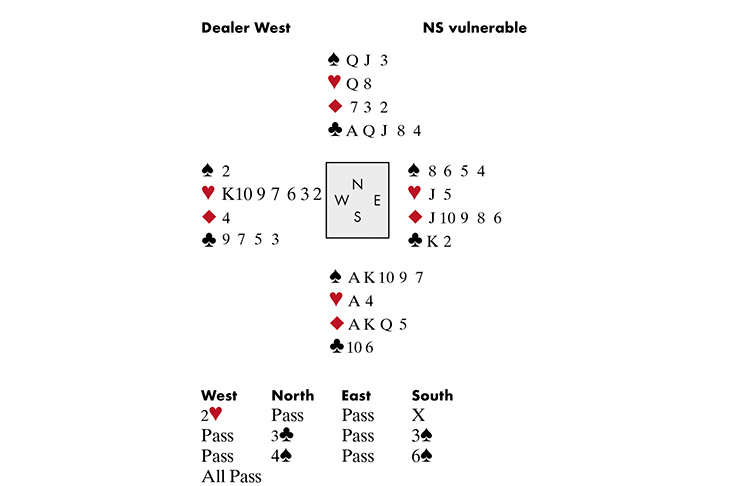When I first learnt bridge, my teacher (not known as bossy boots for nothing) would thump the table when dummy came down and boom: ‘What is your plan?’. I could hardly say I didn’t know I needed one. When I understood what he meant, things became a little clearer, until he introduced ‘Plan B’, reassessing the situation at some point in the play because things have changed. I was reminded of this as we were watching the final of a strong Online Mixed competition (see diagram).
North’s 3♣ promised some values, enabling South to judge that 6♠ should be reasonable — which it was — and West led her singleton Diamond. Declarer started carefully with two rounds of trumps — noting the 4–1 break — and decided to draw all of them before advancing the ten of Clubs. The commentators had become rather excited, wondering if East would find the necessary duck of the first round of Clubs. We held our breath, and when the ♣10 held the trick you could almost hear the cheering, everyone expecting South to finesse again and end up two down.
But this is where Plan B took over; South stopped for a moment, took stock and checked his resources. A recount of his tricks showed he now had 11 winners. With the ♥King with West and the long Diamonds with East, there was no need to finesse Clubs again; Declarer simply cashed his red winners and the last trump. With two cards left, West was clutching the ♥K and East the last Diamond. No one could therefore hold more than one Club, so a Club to the Ace guaranteed success.
A great Plan B.






Comments